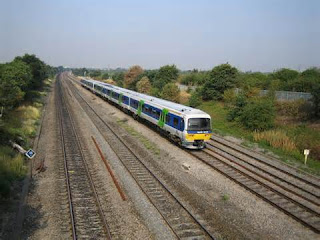WASHINGTON (AP) — At a time of high-profile train wrecks, Republicans are working on legislation to roll back safety regulation of the railroad industriy.
A bill approved this week on a party-line vote by a Senate committee brims with industry-sought provisions that would block, delay or roll back safety rules. The measure is to be part of a must-pass transportation bill that GOP leaders hope to put to a vote in the Senate as early as next week.
They are under pressure to act quickly because authority for transportation programs expires on July 31. Without a cash infusion, the government will have to delay highway and transit aid to states.
One provision would block a new Department of Transportation rule requiring that trains hauling crude oil are equipped with electronically controlled brakes that affect cars all at the same time, rather than sequentially. The bill calls for a study of the technology and puts off any regulatory mandate, which could delay implementation for years.
The brake rule was prompted by a series of train wrecks in which cars of crude oil and ethanol exploded, igniting fires that burned for days. Freight railroads oppose the rule, which could cost them billions of dollars.
Another provision would give freight and commuter railroads and Amtrak more time to install a safety system called positive train control. The technology relies on GPS, wireless radio and computers to monitor train position and slow or stop trains in danger of derailing because they're traveling too fast, are about to collide with another train or are about to enter an area where crews are working on tracks.
A 2008 law requires railroads to have the technology installed and operating by the end of this year. Most are not expected to make that deadline.
The National Transportation Safety Board says that if the technology had been in operation, it could have prevented an Amtrak derailment in May that killed eight people and injured about 200 others in Philadelphia, and a derailment that killed four passengers and injured 64 others in New York City in December 2013, as well as other fatal accidents.
Railroads say they have spent billions of dollars on the technology but have been hampered by technical and financial difficulties and need more time.
Thune and other Republicans on the committee said the changes were necessary reforms to federal agencies that have overstepped their bounds or have issued regulations that unfairly penalize industry without improving safety. Thune noted the bill contains several provisions sought by Democrats and safety advocates.
The GOP bill is "loaded down with giveaways to special interests that will set back safety for years to come," said Jackie Gillan, president of Advocates for Highway and Auto Safety. "The influence of corporate lobbyists had more sway than commonsense and cost-effective solutions to deadly problems."

